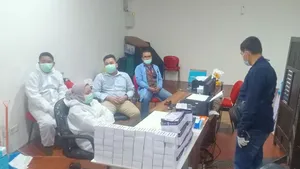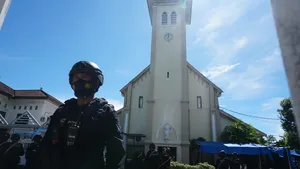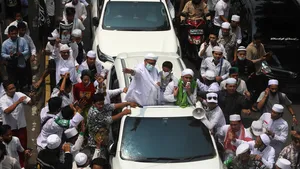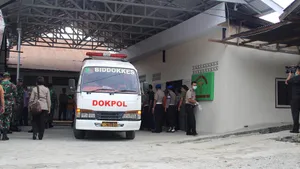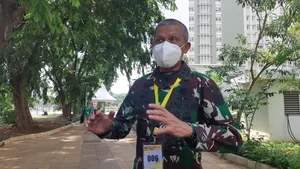OPINION
Statesmen and Democracy
Theoretically, combining a presidential and a multiparty system makes it difficult to form a consolidated legislature.
/https%3A%2F%2Fkompas.id%2Fwp-content%2Fuploads%2F2019%2F11%2F20191107_ENGLISH-SURVEI-KABINET_A_web_1573136794.jpg)
President Joko Widodo (sixth left) and Vice President Ma\'ruf Amin (sixth right), along with members of the Indonesia Onward Cabinet, wave during a group photograph on 23 Oct. 2019 on the front steps of Merdeka Palace in Central Jakarta. Earlier in the day, the President announced the Cabinet line-up, while advising his new ministers against committing corruption and urging them to create a solid system that did not allow corruption.
A president-elect generally finds it difficult to form a solid coalition, so he rarely has majority support in the legislature. This does not happen in Indonesia, especially following the 2019 election, because they are all accommodated in the same government compound.
Following the results of the 2019 election, President-elect and Vice President-elect Joko “Jokowi” Widodo and Ma\'ruf Amin were able to consolidate the Cabinet. They succeeded in welcoming the Gerindra Party, which was given two seats in the Indonesia Onward Cabinet. Gerindra\'s entry means that Jokowi has a large number of supporters in the legislature, at nearly 75 percent (74.98 percent). The three remaining parties – the National Mandate Party (PAN), the Prosperous Justice Party (PKS) and the Democratic Party – are not part of the government and have about 25.74 percent together.
Versi cetak artikel ini terbit di harian Kompas edisi di halaman 6 dengan judul "Negarawan dan Demokrasi".
Baca Epaper Kompas